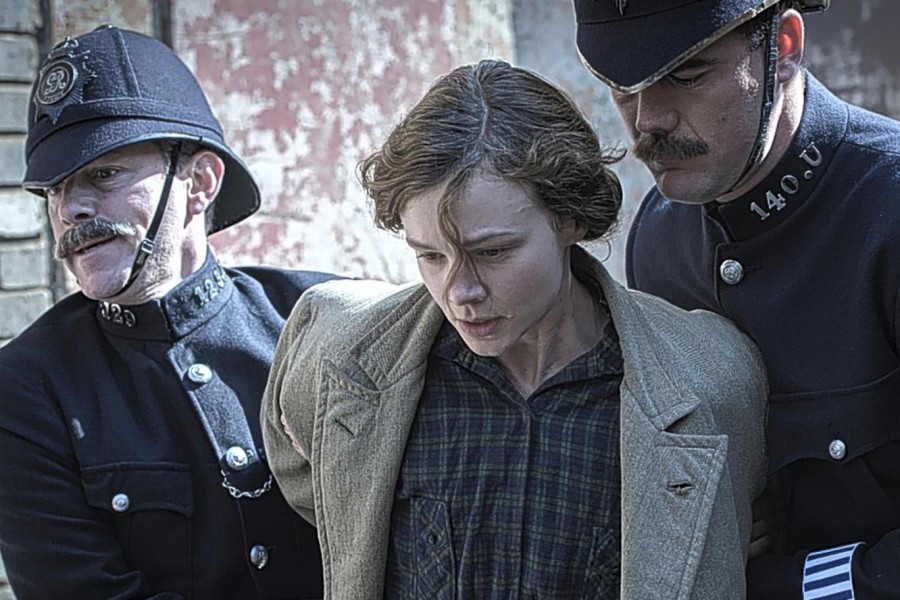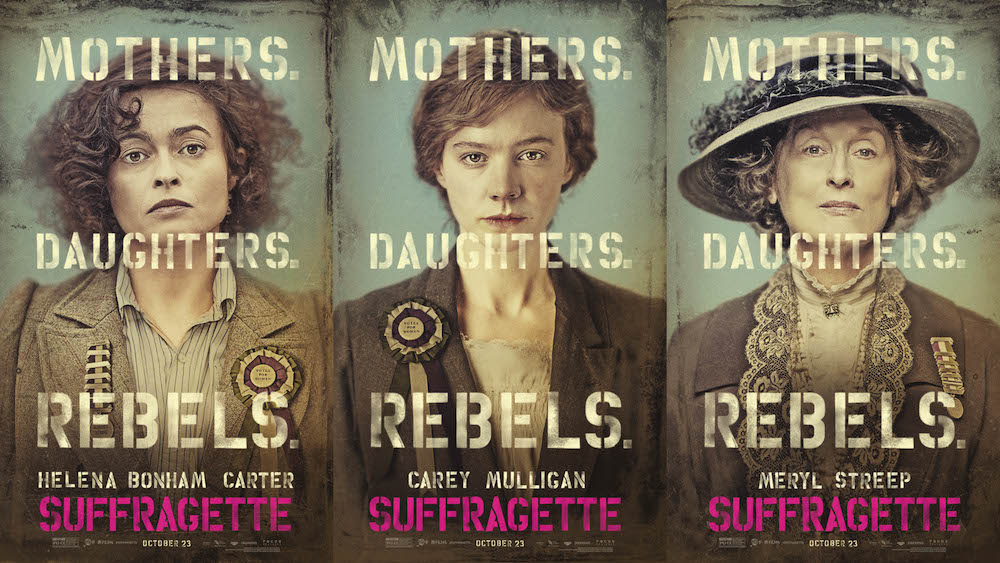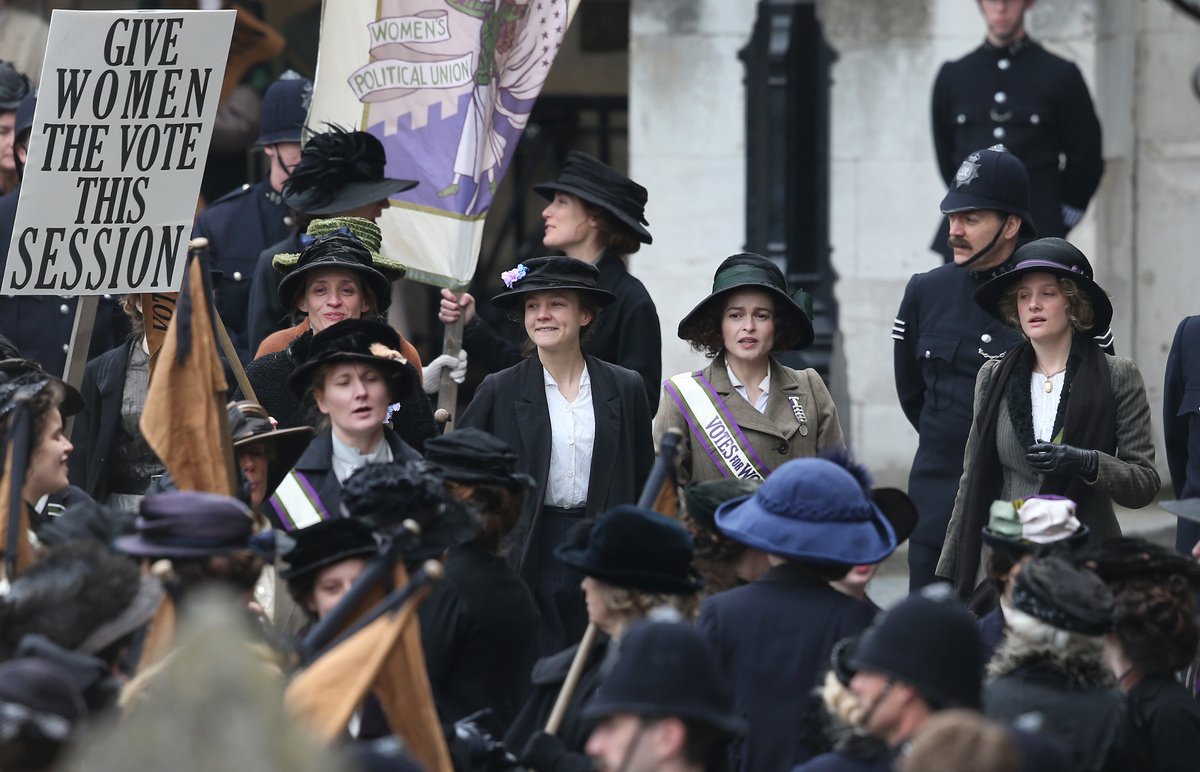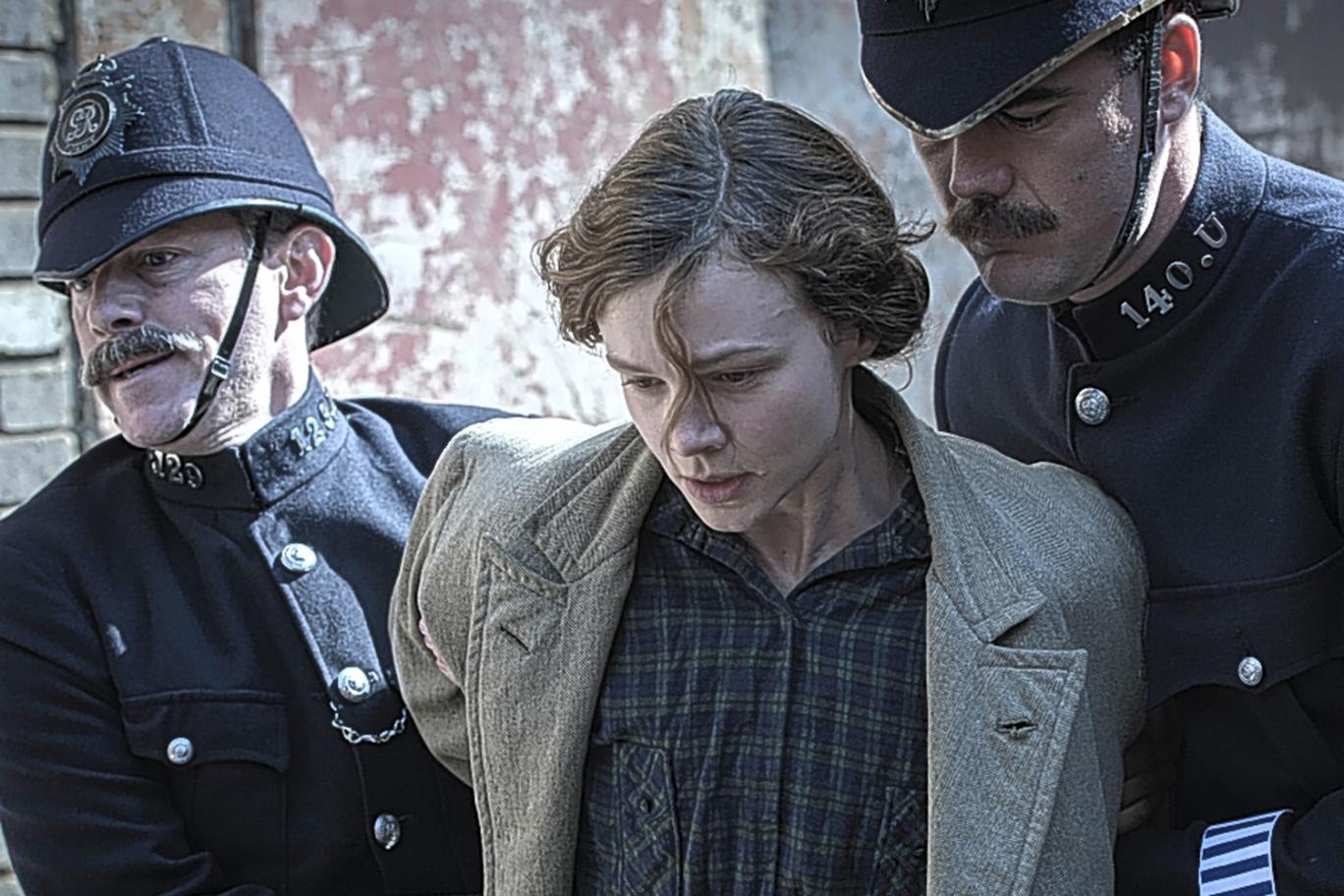Director: Sarah Gavron
Starring: Carey Mulligan, Helena Bonham Carter, Anne-Marie Duff, Meryl Streep, Ben Whishaw, Brendan Gleeson, Romola Garai, Natalie Press
Running Time: 1 hour 46 mins
Rating: 15
Release Date: 12/10/15
It’s not often that an audience is presented with a film that is so strikingly educational as well as wholeheartedly entertaining. One that is beautifully hopeful, yet sobering in its realism and yet BRICK LANE director Sarah Gavron has done just that with her latest feature SUFFRAGETTE.
The British historical drama tells the story of the early Suffragette movement as women across Britain fought for their right to vote in the late 19th to early 20th century, focusing on some of the earliest members of the women’s rights movement. At its centre, FAR FROM THE MADDING CROWD actress Carey Mulligan plays twenty-four year old Maud Watts who, now married with a child, has worked in a factory job since she was seven years old.
After getting caught up in a scuffle between Suffragette members, who are throwing stones into shop windows, and the police, Maud’s naive eyes are opened up to the world of women’s rights as workmate Violet (Anne-Marie Duff) introduces her to their local Suffragette group who are desperate to change the law in allowing women the right to vote.
Maud soon finds herself directly in the conflict between the Suffragette’s and those who are determined to stop them, facing both physical and emotional turmoil. As the State becomes increasingly barbaric in their treatment towards these women, SUFFRAGETTE tells a moving story of strength, power and hope.
The first few words of dialogue are enough to engage our interest, sending quakes of anger down our spines and initiating our own fighting spirit, as the ignorant words of frightened men deem women’s right to vote as futile; “they’re well represented by their fathers, brothers and husbands”. Set against the dark greys of the smokey workhouse, the state of women’s repression is well represented in the film’s general aesthetic of stifling shadows and steaming industrial equipment.
The narrative holds frightening details that can be mirrored so clearly with the struggle women continue to face today. The trepidation Maud feels towards calling herself a Suffragette reflects the confliction many feel in calling themselves feminists in contemporary society due to the negative connotations that are so wrongly thrown at the word. This stops the film from becoming just another historical drama and becomes a constant social reminder of both our successes and failures in the quest for gender equality.
Carey Mulligan is a powerhouse of strength and emotion. She pours herself so willingly into this character that she becomes a truly moving, special presence within the narrative; giving us a wholly enlightening viewing experience. Her development as a character is a wonderfully strong representative of the tentative attitude changes of curious women that then storm into an entirely furious sense of power.
There are moments of such desperation and vulnerability for Mulligan’s Maud that certain scenes urge tears to skim down our cheeks. Precious moments between Maud and her young son George (Adam Michael Dodd) add a touching dimension to Maud’s character as we’re able to see a natural, understandable weakness within her; making the character completely open to the audience for empathy, sympathy and understanding.
Among the rest of the cast there is not one sub-par, nor merely ordinary performance; each is dripping with fierce passion and sincerity. Particular highlights include the joyous Anne-Marie Duff who gave an exceptional example of the whipped up frenzy that runs through the hot blood of these remarkable women, newly enlightened to the ways of early feminism. Natalie Press does a superb job of portraying loyal Suffragette member Emily Wilding Davison, who lost her life when she threw herself in front of King George V’s royal horse in the 1913 Derby. Joining them, Helena Bonham Carter takes on the role of Edith Ellyn and gives a predictably spellbinding performance, as her natural enigmatic nature spills from the screen.
While much of the male presence within the film is understandably repressive and negative, it comes from strong performances from the likes of Brendan Gleeson and Ben Wishaw. With Gleeson playing the man so determined to put an end to the Suffragette movement and Wishaw playing Maud’s increasingly ignorant husband, audiences are able to feel these women’s strain right along with them as our frustrations only increase as the men’s tempers flair.
The only real disappointing issue with casting is the lack Meryl Streep, who appears in the film for all of five minutes, despite her constant appearance within the film’s trailers and posters. However, her appearance is suitably enjoyable as she plays leader of the Suffragette movement Emmeline Pankhurst; perhaps we’ve just become greedy for Streep’s delightful screen presence.
There’s no doubting that Suffragette is a painfully moving film that really does credit to the original Suffragette women. It can’t be denied that Gavron does a brilliant job at representing the state of women’s rights at that particular point in time, but the lasting affect of the film will echo further into the difficulties that lie within contemporary feminism. It reminds us just how far feminism needs to come in terms of diversity and acceptance, recognition and identity; we must continue to ensure that women’s rights become wholly available for all women. Women of colour, trans-women, working class women, gay women; all women.
The film is certainly a think-piece, its narrative goes far beyond the realms of pure entertainment and successfully throws audiences into a pensive state of thoughtfulness. It’s so important to remember that this film represents only one part of the Suffragette movement and there’s so many more aspects to their rise in feminism that desperately needs exploring. Still, thanks to Gavron’s direction and a superb script from Abi Morgan, the film is an overall moving, tense and wonderfully touching viewing experience.
Verdict


































[…] While blockbuster historical drama SUFFRAGETTE, based on Emmeline Pankhurst’s struggle for women’s suffrage in Britain, has been nominated in four categories. (Again, you can read our full review here). […]
Comments are closed.